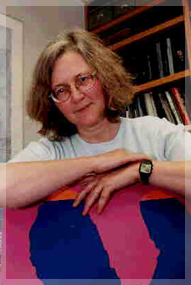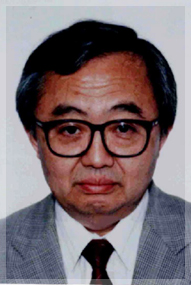The 1999 Keio Medical Science Prize Awardees
Elizabeth Helen Blackburn

Professor ana Chair,Department of Microbiology and Immunology,
University of California,San Francisco
1948年11月26日生まれ
Reason for Selection and her Major Achievement:
Theme: Telomere and telomerase
Dr. Elizabeth Blackburn is a leader in the area of telomere and telomerase research. She discovered the ribonucleoprotein enzyme, telomerase, and has broad experience in the different aspects of telomere function and biology. Hers is a lead laboratory in manipulating telomerase activity in cells, and she has amassed considerable knowledge and experience in the effects this has on cells. Dr. Blackburn and her research team are working with various organisms and human cancer cells, with the goal of understanding telomerase and telomere biology. Her newest advances on functionally uncapped telomeres will help understand aspects of aging and cancer.
Background
<Education>
- 1970
- B.Sc. in Biochemistry, University of Melbourne, Melbourne, Australia
- 1972
- M. Sc. in Biochemistry, University of Melbourne, Melbourne, Australia
- 1975
- Ph.D. in Molecular Biology, University of Cambridge, England
- 1975-1977
- Postdoctoral Fellow in Molecular and Cell Biology,
Yale University, New Haven, Connecticut
<Research and Professional Activities>
- 1975-1977
- Postdoctoral Fellow, Department of Biology, Yale University
- 1978
- Postdoctoral Fellow, University of California, San Francisco
- 1978-1983
- Assistant Professor, Department of Molecular Biology, University of California, Berkeley
- 1983-1986
- Associate Professor, Department of Molecular Biology, University of California, Berkeley
- 1990-present
- Professor, Department of Microbiology and Immunology,
and Department of Biochemistry and Biophysics,
University of California, San Francisco - 1993-present
- Chair, Department of Microbiology and Immunology, University of
California, San Francisco - 1998
- President, The American Society for Cell Biology
<Honors>
- 1993
- Elected, Foreign Associate, National Academy of Sciences
- 1998
- Gairdner Foundation Award
- 1998
- Australia Prize
- 1999
- Rosenstiel Award
- 1999
- Passano Award
Shinya Yoshikawa

Professor in Cell Physiology,
Department of Life Science,
Himeji Institute of Technology
Reason for Selection and his Major Achievement:
Theme: Three Dimensional Structure of Bovine Heart Cytochrome c Oxidase and Relation with Enzyme Activity
Dr. Shinya Yoshikawa and his coworkers have elucidated the complete three-dimensional structure of mammalian cytochrome c oxidase, the key respiratory enzyme in the mitochondrial membrane. He has also established the pathway for the four-electron reduction of molecular oxygen to H2O by identifying the reaction intermediates. Based on these achievements, he is currently clarifying the mechanism for energy transduction by the oxidase, i.e. the proton-pumping mechanism across the mitochondrial membrane coupled with dioxygen reduction. His recent discovery, based on the redox-coupled structural changes of the protein, that Asp51 residue in a hydrogen bond network of the oxidase is the active pumping site for the vectorial proton transfer may provide a clue in solving the long-lasting problems.
Background
<Education>
- 1965
- B.A. in Biology, Osaka University, Japan
- 1970
- Ph.D. in Biochemistry, Osaka University, Japan
<Research and Professional Activities>
- 1971-1972
- Department of Biology, Osaka University, Postdoctoral Trainee
(Biochemistry) - 1972-1978
- Department of Biology, Konan University, Assistant Professor
(Physiological Chemistry) - 1974-1975
- Visiting Professor at Department of Biochemistry, Colorado
State University (Winslow S. Caugheyfs laboratory) - 1978-1983
- Department of Biology, Konan University, Associate Professor
(Physiological Chemistry) - 1983-1988
- Department of Biology, Konan University, Professor (Physiological
Chemistry) - 1988-1989
- Basic Research Laboratory, Himeji Institute of Technology,
Professor (Informational Bioscience) - 1989-
- Department of Life Science, Himeji Institute of Technology,
Professor (Cell Physiology) - 1999
- Robert B. Woodward visiting Professor at Department of Chemistry
and Chemical Biology, Harvard University
<Awards>
- 1996
- Amgen Award: by Protein Society at 10th Annual Symposium at
San Jose California, USA
(with Prof. Tomitake Tsukihara, Osaka University) - 1997
- Science Award of Hyogo Prefecture
- 1998
- Erald Antonini Medal: by Italian Biochemical Society at 43rd
National Congress at Bari, Italy - 1999
- David Keilin Memorial Award: by the Biochemical Society at 668th
Meeting at University Glasgow, UK
